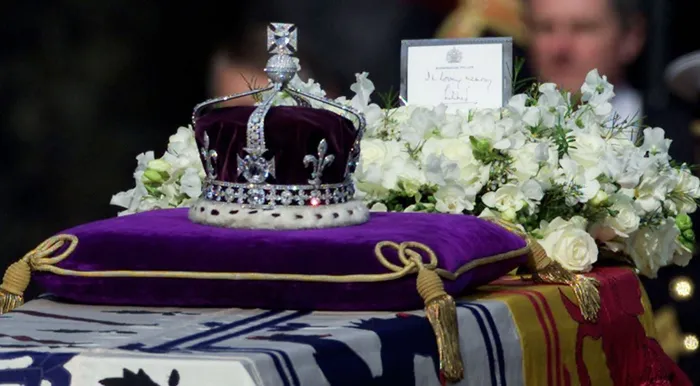King Charles III must return jewels ‘stolen’ from nations

By Chad Williams
In the wake of the death of England’s longest reigning monarch, Queen Elizabeth II, her son Charles, who has since assumed the throne, should do the ethical thing and return precious jewels that were stolen by British soldiers during colonialism.
These very jewels, which not only adorn the late queen’s crown but also fill museums across the UK, must be returned to Africa. This is non-negotiable. This week, as I was following the media coverage out of the UK of the queen’s memorial, I couldn’t help but wonder why Britain has never been hauled to African courts to face the music for their role in crimes against humanity during the dark days of colonialism.
I remember seeing a report by the BBC on the queen’s relationship with Africa on one of the social media platforms. The comments section was turned off for this particular report on all social media platforms. Why is that?
Well, what we have seen, especially on social media, was an outpouring of anger from many individuals whose ancestors were brutally erased from the map, while African natural resources were stolen in the process, never to return to the continent again. I think it’s safe to say that I know why Africans are angry. And we have every right to be.
Colonialism is the practice of one country taking full or partial political control of another country and occupying it with settlers for purposes of profiting from its resources and economy. Robert Longley from ThoughtCo writes that since both practices involve the political and economic control of a dominant country over a vulnerable territory, colonialism can be hard to distinguish from imperialism.
From ancient times to the beginning of the 20th century, powerful countries openly scrambled to expand their influence through colonialism. By the outbreak of World War I in 1914, European powers had colonised countries on virtually every continent. While colonialism is no longer so aggressively practised, there is evidence that it remains a force in today’s world, says Longley.
Fast forward to this year and the continent remains poor. How is this possible, when the African continent is the most resource-abundant continent? Resources such as gold, diamonds, oil, natural gas, copper and uranium, among others, are mined in different parts of the continent.
Almost every country in Africa has a deposit of natural resources. Africa’s disdain for the British royals is a long time coming, and I have to say that Elizabeth’s death just sparked another match in the everburning fire, where renewed calls for reparations are now ringing louder, more than ever.
The British monarch’s passing has revived a sensitive debate over Africa’s colonial past, the return of stolen jewels from African soil, or “looted” as the Westerners like to call it. In particular, people have been calling for the return of the Koh-iNoor diamond, which is set in the crown of the queen mother and is part of the crown jewels on display at the Tower of London and the Great Star of Africa, set in the sovereign’s sceptre, which is also part of the crown jewels.
The Koh-i-Noor is one of the largest cut diamonds in the world, coming in at just over 105 carats. It is said to be worth between $140 million and $400m but is also hailed as priceless. It is also known as one of the world’s most controversial diamonds.
Calls have also grown for the Great Star of Africa – also known as Cullinan I and First Star of Africa – to be returned. The British claim it was given to them as a symbol of friendship and peace, yet it was during colonialism. The British then replaced the name The Great Star of Africa with the name of the owner of the Premier Mine, Thomas Cullinan.
Elizabeth’s death came at a time when European countries are under pressure to reckon with their colonial histories, atoning for past crimes and returning stolen African artefacts held for years in museums in London and Paris. Returning a few paintings and artefacts here and there is simply not going to cut it.
As part of recent reparations for the past, Nigeria and neighbouring Benin have seen the return from Britain and France of the first of thousands of artefacts plundered during colonial times. Nigeria’s so-called Benin Bronzes – 16th to 18th-century metal plaques and sculptures – were looted from the palace of the ancient Benin Kingdom and ended up in museums across the US and Europe. When Elizabeth was born in 1926, the British Empire spanned six continents.
During her reign, which began in 1952, most of the 56 countries that make up the Commonwealth gained their independence, including many nations on the African continent such as Ghana, Kenya, and Nigeria. While some praised the role she played leading up to Nigeria’s independence, others pointed out that she was head of state when Britain supported the Nigerian army during the country’s civil war.
More than a million people died in the Biafran War between 1967 and 1970, mostly from hunger and disease, during the conflict that followed the declaration of independence by ethnic Igbo officers in the south-east of the country.
Williams is a multi-media journalist with the African News Agency (ANA).
Related Topics: